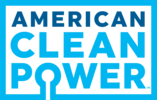News Release from American Clean Power Association (ACP)
Wind Industry Profile of
US: Wind energy industry announces new voluntary practices to reduce overall impacts on bats by 30 percent
The agreement, developed by the American Wind Energy Association (AWEA) with the initial support of 17 of its member companies, involves wind operators’ voluntarily limiting the operations of turbines in low-wind speed conditions during the fall bat migration season, when research has shown bats are most at risk of collision. The new protocols are based on over 10 years of research by the Bats and Wind Energy Cooperative (BWEC) and others.
“The adoption of this protocol to reduce impacts to bats is a continuation of our legacy of care for wildlife and the environment,” said Tom Kiernan, CEO of AWEA. “American wind power is strongly committed to producing one of the safest and cleanest forms of energy, for people and wildlife."
“As we continue to strive to make the wind industry’s impacts as low as possible, we hope this step can serve to encourage other energy industries, and all businesses for that matter, to proactively take steps to reduce their impacts on the environment in their respective communities,” continued Kiernan.
Despite the potential collective loss of millions of dollars in electric generation, the U.S. wind energy industry has voluntarily committed to changing how turbines are operated during the bats’ fall migration season, slowing blade rotations to fewer than 1-3 revolutions a minute, depending on blade length, thereby reducing the risk of collision. On-the-ground research over the past decade at a number of operating wind farms has shown that will significantly reduce the collision risk for bats in low wind speed conditions when they are most at risk. The expected reduction of overall bat impacts was calculated with data from the research by BWEC and the conservation and academic communities who worked with the industry to identify solutions.
“That this industry-wide best practice has been voluntarily adopted demonstrates how the U.S. wind energy industry holds itself to a higher standard,” said John Anderson, Senior Director, Permitting Policy and Environmental Affairs, for AWEA. “Our industry values all wildlife and habitat. By proactively employing this measure to reduce our already low environmental impacts further, consumers can have even more confidence in buying clean, affordable, and carbon-free wind energy.”
Representatives from the conservation community applauded the action taken by the industry:
- “The implementation of this industry-wide practice is an important step and demonstrates how far the wind energy industry has come on the issue of bats. We believe this will, on average, reduce bat fatalities significantly among participating facilities across the country. We appreciate the industry’s efforts to protect species of bats that otherwise would have no protection under current federal law.” – Andrew Walker, Executive Director, Bat Conservation International
- “Through common sense practices and a proactive spirit by the wind industry, it’s clear we can both move the nation toward a clean energy future, and protect wildlife.” – Collin O’Mara, President and CEO, National Wildlife Federation
- “We applaud the U.S. wind energy industry’s decision to voluntarily and significantly reduce its bat impacts. Growing clean energy here at home is one of the best ways we can balance growing a competitive economy with protecting the environment. Building a more diverse energy mix that includes wind energy is one of the best ways the U.S. can cost-effectively cut carbon pollution, keep the lights on for American families and businesses, and protect our treasured landscapes and wildlife.” – Rob Sisson, Executive Director, ConservAmerica
- “This action by the wind industry to protect bats is a truly commendable example of corporate responsibility and proactive stewardship. The ecological and economic importance of bats, which can eat their body weight in insects each night, cannot be overstated. They save farmers more than $3.7 billion per year in reduced crop damage. We applaud the wind industry’s continued commitment to minimizing impacts and safeguarding wildlife.” – David Jenkins, President, Conservatives for Responsible Stewardship
- "Congratulations to wind industry leaders for taking proactive steps to address impacts of wind energy on bats. AWWI looks forward to continuing to collaborate with its partners in the science, industry, and conservation communities to find effective ways to minimize and mitigate these impacts." Abby S. Arnold, Executive Director, American Wind Wildlife Institute (AWWI)
U.S. wind farms benefit wildlife by helping to keep our environment clean, as wind energy emits no air or water pollution, requires no fuel, uses no water in the production of power, and creates no hazardous or radioactive waste. Wind energy also acts as a leading solution to climate change, the greatest threat to all wildlife, by greatly reducing carbon dioxide emissions and other pollutants in nearly every state. It avoids 126 million metric tons of carbon dioxide a year in the U.S. – or 26 million cars’ worth of carbon emissions.
Today’s announcement comes on the eve of the annual National Wildlife Day, this year on Friday, Sept. 4. National Wildlife Day was created as one way to “help preserve the planet’s animals and educate the public about conservation.” It is sponsored by Animal Planet, Roots & Shots, Australia Zoo Worldwide, and the International Fund for Animal Welfare.
- Source:
- AWEA
- Email:
- windmail@awea.org
- Link:
- www.awea.org/...
